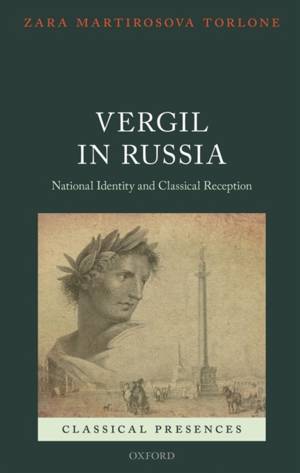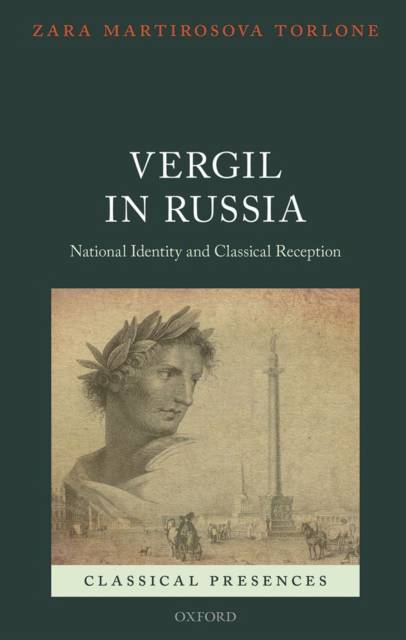
- Retrait gratuit dans votre magasin Club
- 7.000.000 titres dans notre catalogue
- Payer en toute sécurité
- Toujours un magasin près de chez vous
- Retrait gratuit dans votre magasin Club
- 7.000.0000 titres dans notre catalogue
- Payer en toute sécurité
- Toujours un magasin près de chez vous
198,95 €
+ 397 points
Description
The Russian reception of the greatest Roman poet, Vergil, provided Russian thinkers with a way in which to define Russian-European features. This volume looks to uncover the nature of Russian reception of Vergil, and argues that the best way to analyse his presence in Russian letters is to view it in the context of the formation and development of Russian national and literary identity. Russian reception of Vergil began to play an integral role in the eighteenth century -- starting with the reforms of Peter the Great -- and continued to be an important point of reference for Russian writers well into the last part of the twentieth century. At the beginning of the twentieth century, it took on a spiritual, almost messianic mission, while towards the end of the millennium the post-modernist Vergil of Joseph Brodsky contemplated the fate of a poet in the world. However, Russian reception of Vergil offers significantly more than mere foreign importation or imitation of the beliefs and attitudes towards Vergil developed in Europe. It provides a gateway to understanding Russian eighteenth- and nineteenth-century thought about national identity and values, and uncovers important sources of later thinking about the character and destiny of Russia. Vergil in Russia reveals that at the centre of Russian reception of Vergil is Russia's challenge to define the character and
validity of their own civilization. Vergil's poems, especially the Aeneid, gave Russian men of letters an opportunity to think about and act upon national self-determination in both political and cultural terms.
validity of their own civilization. Vergil's poems, especially the Aeneid, gave Russian men of letters an opportunity to think about and act upon national self-determination in both political and cultural terms.
Spécifications
Parties prenantes
- Auteur(s) :
- Editeur:
Contenu
- Nombre de pages :
- 320
- Langue:
- Anglais
- Collection :
Caractéristiques
- EAN:
- 9780199689484
- Date de parution :
- 13-01-15
- Format:
- Livre relié
- Format numérique:
- Genaaid
- Dimensions :
- 216 mm x 145 mm
- Poids :
- 517 g

Les avis
Nous publions uniquement les avis qui respectent les conditions requises. Consultez nos conditions pour les avis.






